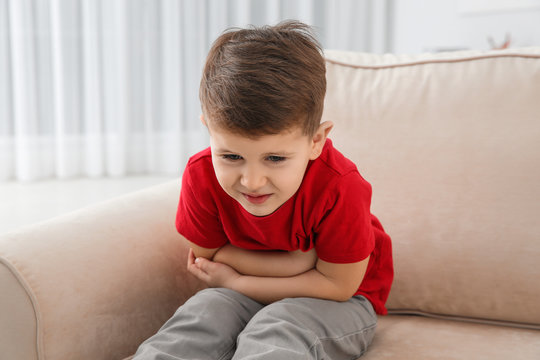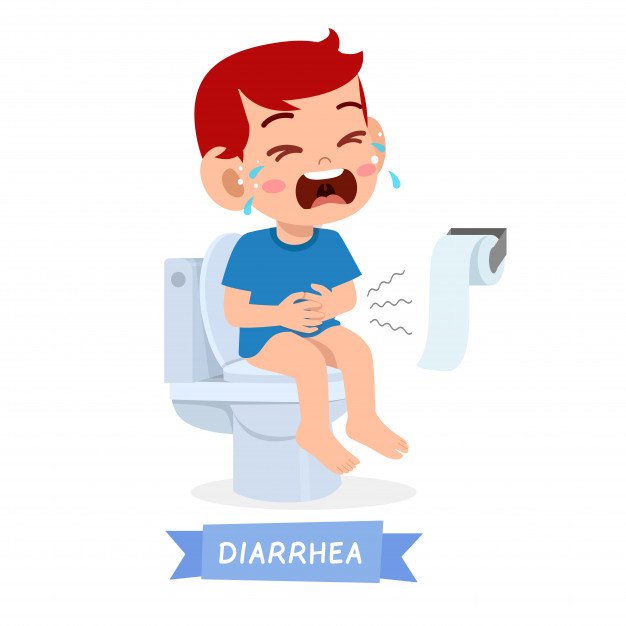Caring For Children’s Stomach In Summers

Summers are just round the corner and these sizzling months are comparatively difficult times for mothers to take care of their children. Reasons are aplenty. Diarrhoea, rashes, heat stroke, seasonal infections, fever, dehydration are some of the prominent summer issues that impact a baby’s comfort. Dr. Ravi Kiran, Senior Consultant and Pediatrician, shares some tips that might come in handy as you look after your baby this summer.
Diarrhoea is passing loose or watery stools three or more times in a 24 hour period. Millions of children’s lives have been saved by protecting them against diarrheal disease, yet it remains the second leading killer of children worldwide.

What causes diarrhoea in the newborns in summer?
Newborns have a developing immune system that makes them more prone to pick up infections easily. Luckily breastfed babies are protected as the breast milk passes on antibodies to the newborns that make them stronger to fight common germs and viruses. However, for babies who are formula milk and bottle fed, summers may increase the risk of diarrhoea when their stools become watery and may leave them dehydrated. The evaporative heat loss from the skin is also increased in summer this makes them more prone for dehydration.
The best feed for a newborn to be on is exclusive breastfeeding till the completion of 6 months and this should be the goal for mothers and health care workers to strive for. Switching over or adding formula milk or bottle feeds poses a very high risk for diarrhoea. In that case, bottle hygiene with sterilization before each feed would mitigate the risk to an extent. Excessive heat and humidity during summer makes it the apt season for growing infection—virus, bacteria or parasite, affecting the child’s health and causing indigestion and diarrhoea. Other risk factors could be nutrient intolerance, inflammatory bowel disease, irritable bowel disease and side effects of some medicines.
Signs of diarrhoea in children that parents need to watch out
Despite advances diarrhoeal diseases and resulting dehydration are responsible for about 1.2 million child deaths every year. Of these 50% are preventable by simple hydration with ORS and appropriate availability of healthcare facilities, another 15 to 20% benefit from rightly diagnosed bacterial infection and its treatment. Infants and toddlers are at a greater risk of becoming rapidly dehydrated. The symptoms of mild to moderate dehydration among children are dry mouth, dry eyes (tearless cry), weakness, flushed face, passing less urine than usual (keep an eye on fewer wet nappies in babies and toddlers), irritability, listlessness.
In case of severe depression, a child may have sunken eyes, cheeks, belly or a sunken fontanelle (the soft spot on the top of the head in babies and toddlers), listless or fainting, refusal of liquids, dull/unwell appearance, wrinkled skin (skin pinch stays wrinkled), bloated abdomen, rapid breathing, no urine for 6 to 8 hours at a stretch.
Painful abdominal cramps, blood or mucus in stools, nausea, fever, bloating and generalised weakness may be common signs that co-exist among newborns with diarrhoea.
How do parents of children with diarrhoea and dehydration take care of them during summer?
Oral Rehydration Therapy (ORT): ORT includes home available fluids (HAF) Salt and sugar solution (2 pinch of salt and one teaspoon of sugar is added to 1 glass clean water), tender coconut water and rice water or buttermilk with salt are some of the most common oral rehydration solutions. WHO pre-packaged ORS is also a safe choice. WHO proves that almost 90% of childhood diarrhoea can be tackled with ORT alone. ORS can be prepared at home using 1 litre clean water to which 6 level teaspoons sugar and ½ teaspoon of common salt is added. Sips should be given every two-to-three minutes to prevent vomiting. If the baby vomits, resume after a short gap of 10 minutes. It is important to make the parents understand that ORS or other discussed medications doesn’t stop diarrhoea, and diarrhoea stopping medicines are not to be used. Most of the diarrhoea last only a few days, till then hydration is the goal. Plain sugar solutions or tetra packs with concentrated sugars are to be avoided as they may trigger vomitings.
Breastfeeding: Continuing breastfeeding is a must in order to help your child get adequate antibodies to fight the infection once affected with diarrhea.
Easy to digest foods: Make sure to provide easily digestible food to the children and this should be taken in small quantities at shorter intervals. Easily available, culturally acceptable, palatable and energy dense foods can be offered like khichdi with extra oil, mashed potatoes with oil, mashed banana, curd rice, bread and other cereals. Low lactose formula or soya milk can be given.
Foods to be avoided: If the diarrhoea persists for more than a week, it is advisable to avoid cow milk or formula milk. Also, food with high fibre content like fruits and vegetables must be avoided.
Some tips to keep your child’s stomach cool in summers
Make them eat less: Avoid heavy meals for them as their digestive system becomes sensitive during summer. Smaller meals at shorter intervals and adding green leafy veggies and fresh fruits to their diet may keep your child hydrated and prevent diarrhoea.
Keep them hydrated: Make them have enough fluids like water, milk, buttermilk, coconut water, mango panna to prevent dehydration.
Certain herbs are necessary: In summers, make sure to add herbs like coriander, fennel seeds, cilantro and ginger to the food you cook for your child. These enhance digestion, absorb gas, lessen stress and enhance blood circulation in the digestive system. Also, make sure to include enough salt in their diet as that will compensate with the body salt they lose during summers.
Keeping these in mind, summers can be smoother and tension-free for mommies of newborns and toddlers and healthy for the children.
Ad



